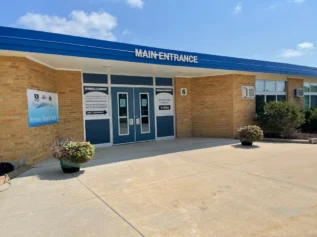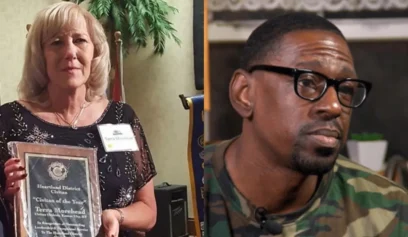When United States Rep. James Clyburn of South Carolina called for the black national Anthem “Lift Every Voice and Sing” to be made a national hymn, social media users responded by calling for reparations to be paid to Black Americans.
Clyburn, the House majority whip, is preparing to propose this week that the song, first written as a poem by writer and NAACP leader James Weldon Johnson, be named the national hymn.
“To make it a national hymn, I think, would be an act of bringing the country together. It would say to people, ‘You aren’t singing a separate national anthem, you are singing the country’s national hymn,'” Clyburn said to USA Today this week. “The gesture itself would be an act of healing. Everybody can identify with that song.”
But social media users responded to the proposal by calling for reparations instead.
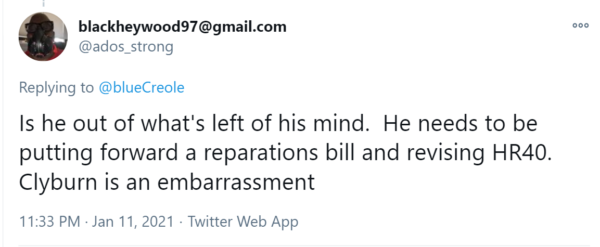
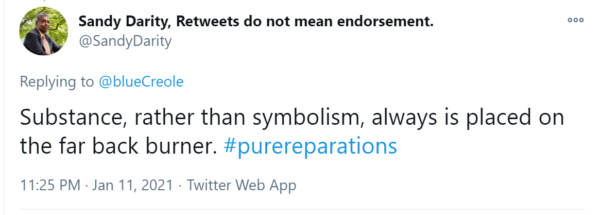
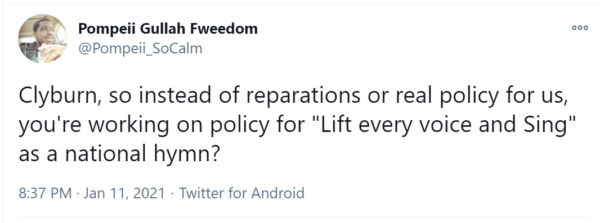
Some asserted that reparations would do more to atone for slavery and the centuries of legalized racism that followed then Clyburn’s proposed gesture.
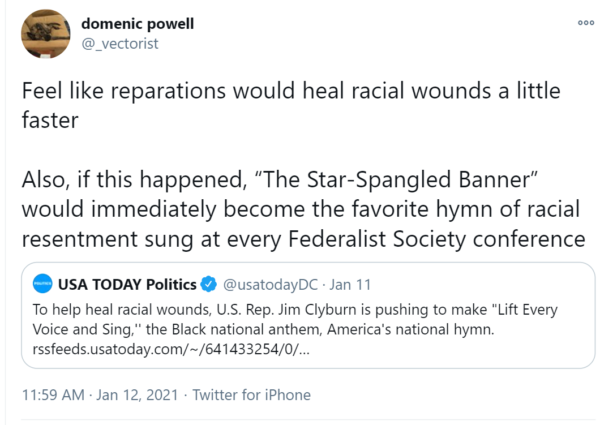
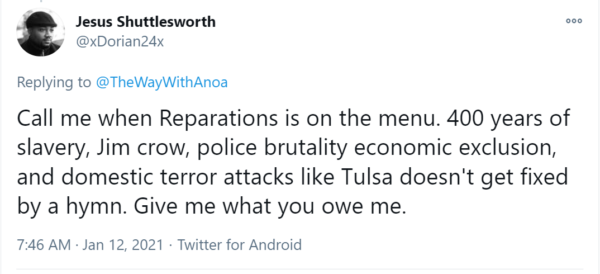
In criticizing the call for the Black national anthem to be named a national hymn, some users drew attention to other issues in addition to reparations, including health care and COVID relief.
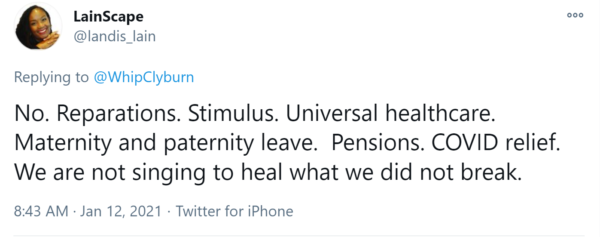
Advocates of reparations say a transfer of wealth is necessary to redress the racial wealth gap and other disparities stemming from centuries of slavery and Jim Crow laws, as well as state-sanctioned brutality. According to the Federal Reserve, the median wealth of Black households in $16,000, compared to $163,000 for white households.
Reparations could be applied in a variety of forms, including direct payment in a lump sum, or payments distributed as a monthly pension.
Recipients of reparations might also be able to apply a voucher toward buying a home, paying for college, or for medical insurance.
Last year, states and cities took historic steps toward considering reparations for slavery. California lawmakers began setting up a task force to study reparations, and officials in cities like Asheville, North Carolina, and Providence, Rhode Island, have proposed measures to address years of injustice.
Most recently, the city of St. Paul, Minnesota, apologized for its role in institutionalized racism on Wednesday, Jan. 13, as the City Council voted to form a commission to look into reparations for descendants of slaves.
“The debt that our country owes to African American slavery because it essentially propelled us to being an economic powerhouse as a brand-new country,” said City Council member Jane Prince.
“One of the first things we’re doing by way of this resolution is apologizing for American slavery, and the way in which our state and city have benefited from it.”

